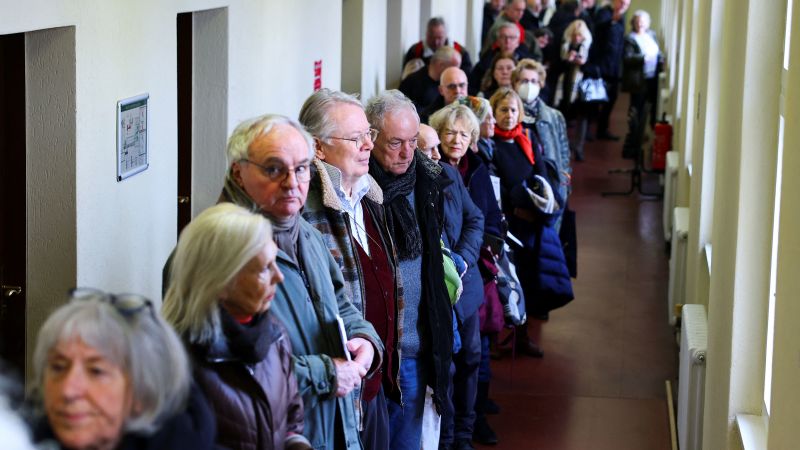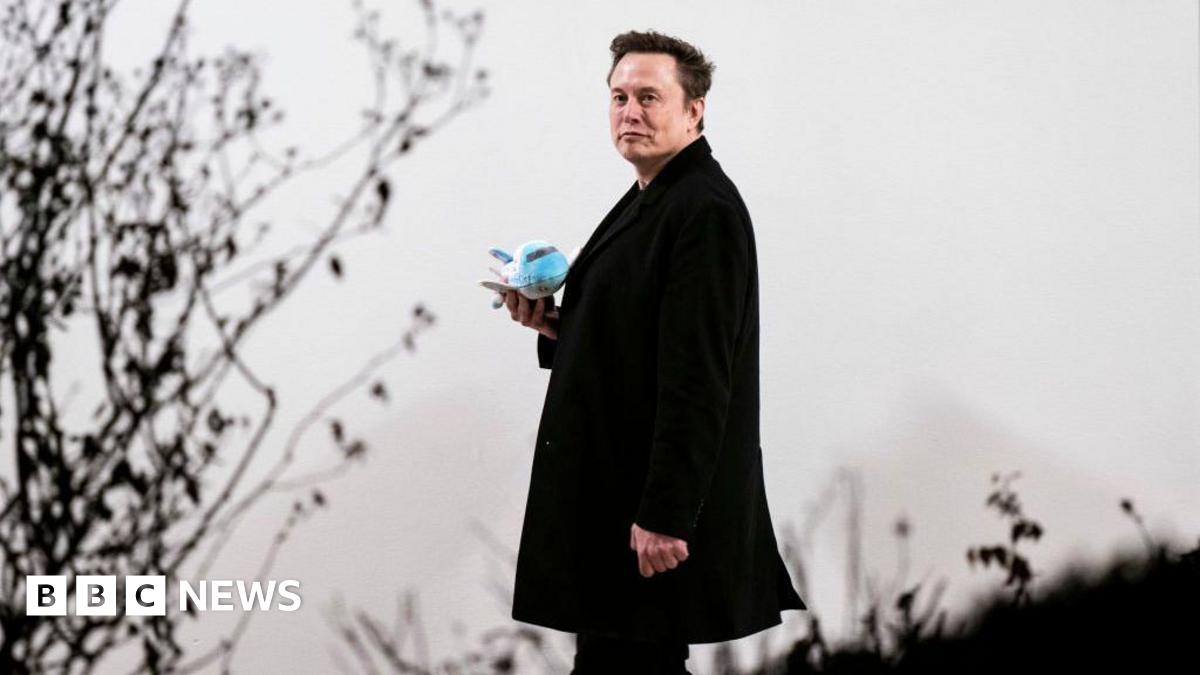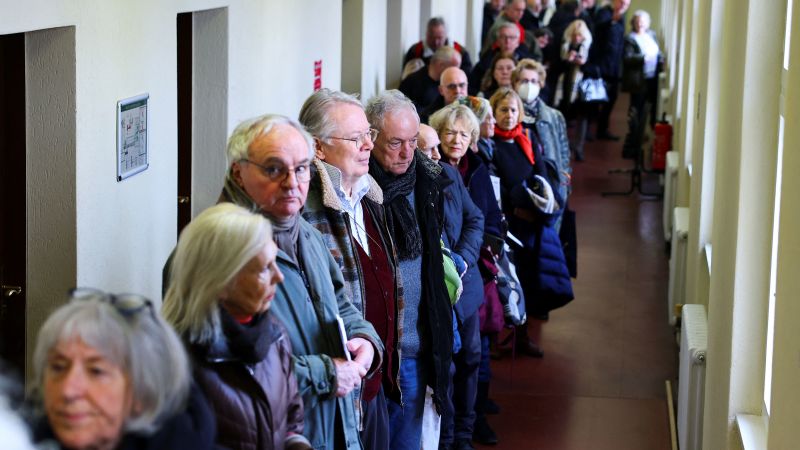Germany Election: A Deep Dive Into The Candidates And Platforms

Table of Contents
Germany Election: A Deep Dive into the Candidates and Platforms
BERLIN, GERMANY – Germany's 2021 federal election, held on September 26th, saw a significant shift in the country's political landscape. While Angela Merkel's era as Chancellor came to an end, the race to succeed her was fiercely contested, resulting in a coalition government. This deep dive examines the key candidates and their platforms, providing context to the election's outcome and its lasting impact on German politics.
The Key Players and Their Stances:
The election primarily centered around three major contenders: Armin Laschet (CDU/CSU), Olaf Scholz (SPD), and Annalena Baerbock (Bündnis 90/Die Grünen). While other parties participated, these three dominated the public discourse and ultimately shaped the post-election negotiations.
-
Armin Laschet (CDU/CSU): Laschet, the candidate for the conservative Union bloc (CDU/CSU), campaigned on a platform of fiscal responsibility and economic stability. He emphasized maintaining Germany's strong economic position while advocating for moderate reforms. His campaign, however, was plagued by inconsistencies and perceived lack of decisiveness, ultimately hurting his electability. Laschet's focus on pragmatism and incremental change contrasted with the more ambitious proposals of his rivals. His platform included promises to modernize infrastructure, invest in digitalization, and strengthen Germany's role within the European Union. However, his inability to effectively communicate his vision and overcome internal party divisions ultimately led to his defeat.
-
Olaf Scholz (SPD): Scholz, the candidate for the Social Democratic Party (SPD), presented a more progressive platform focused on social justice and climate action. He promised significant investments in infrastructure, education, and renewable energy. His campaign successfully portrayed him as a steady and reliable leader, capable of navigating the complexities of German politics and international relations. Scholz emphasized the need for stronger social safety nets and a more equitable distribution of wealth, striking a chord with many voters concerned about rising inequality. His promise of a "modernization offensive" resonated with voters seeking tangible improvements in their daily lives. Ultimately, Scholz's measured approach and perceived competence led to his victory and appointment as Chancellor.
-
Annalena Baerbock (Bündnis 90/Die Grünen): Baerbock, the candidate for the Green Party (Bündnis 90/Die Grünen), ran on an ambitious platform centered on climate change and environmental protection. Her campaign prioritized a swift transition to renewable energy, increased investment in sustainable technologies, and a comprehensive overhaul of Germany's environmental policies. Baerbock also advocated for social justice reforms and a more assertive foreign policy. While her campaign initially enjoyed a surge in popularity, it later faced setbacks due to controversies surrounding her academic background and campaign finances. Despite the challenges, the Green Party secured significant gains, becoming a major player in the subsequent coalition negotiations.
The Election Results and Coalition Formation:
The 2021 German federal election resulted in a fragmented parliament. While the SPD emerged as the largest party, it fell short of a majority. This necessitated the formation of a coalition government. After protracted negotiations, the SPD, the Greens, and the Free Democratic Party (FDP) formed a three-party coalition government, often referred to as the "traffic light coalition" due to the parties' colors (red-SPD, green-Greens, yellow-FDP).
Impact and Lasting Significance:
The 2021 German election marked a turning point in German politics. The rise of the Green Party to a major coalition partner underscored the growing importance of climate change as a political issue. The coalition government's agenda includes ambitious targets for reducing greenhouse gas emissions, expanding renewable energy, and investing in climate-friendly technologies. The election also demonstrated a shift away from the long-standing dominance of the CDU/CSU and signaled a move towards a more progressive and environmentally conscious political landscape in Germany. The election's impact extended beyond Germany's borders, influencing European Union policies and strengthening Germany's commitment to international cooperation on climate change and other global challenges. The formation of the traffic light coalition demonstrated the increasing complexity and fragmentation of German politics while simultaneously showcasing the potential for compromise and collaborative governance.

Featured Posts
-
 Hamzah Sheeraz Wins Controversial Bout Against Carlos Adames
Feb 24, 2025
Hamzah Sheeraz Wins Controversial Bout Against Carlos Adames
Feb 24, 2025 -
 Us Pushes Ukraine To Replace Un Resolution Condemning Russia
Feb 24, 2025
Us Pushes Ukraine To Replace Un Resolution Condemning Russia
Feb 24, 2025 -
 Us Federal Workers Face Ultimatum Document Or Resign Says Doge
Feb 24, 2025
Us Federal Workers Face Ultimatum Document Or Resign Says Doge
Feb 24, 2025 -
 U Conn Dominates Womens Basketball Falls Short
Feb 24, 2025
U Conn Dominates Womens Basketball Falls Short
Feb 24, 2025 -
 Keep Your Cool Expert Techniques For Handling High Pressure Situations
Feb 24, 2025
Keep Your Cool Expert Techniques For Handling High Pressure Situations
Feb 24, 2025
Latest Posts
-
 U S Pushes Ukraine To Rewrite Un Resolution Condemning Russia
Feb 25, 2025
U S Pushes Ukraine To Rewrite Un Resolution Condemning Russia
Feb 25, 2025 -
 Declining Ticket Sales Kennedy Center Performances May Be Cancelled
Feb 25, 2025
Declining Ticket Sales Kennedy Center Performances May Be Cancelled
Feb 25, 2025 -
 Father And Sons Utah Hiking Survival Abandoned Gear Saves Lives
Feb 25, 2025
Father And Sons Utah Hiking Survival Abandoned Gear Saves Lives
Feb 25, 2025 -
 Learning From Mistakes Parking In The Peak District
Feb 25, 2025
Learning From Mistakes Parking In The Peak District
Feb 25, 2025 -
 German Election 2024 The Impact On Europe And Beyond
Feb 25, 2025
German Election 2024 The Impact On Europe And Beyond
Feb 25, 2025
